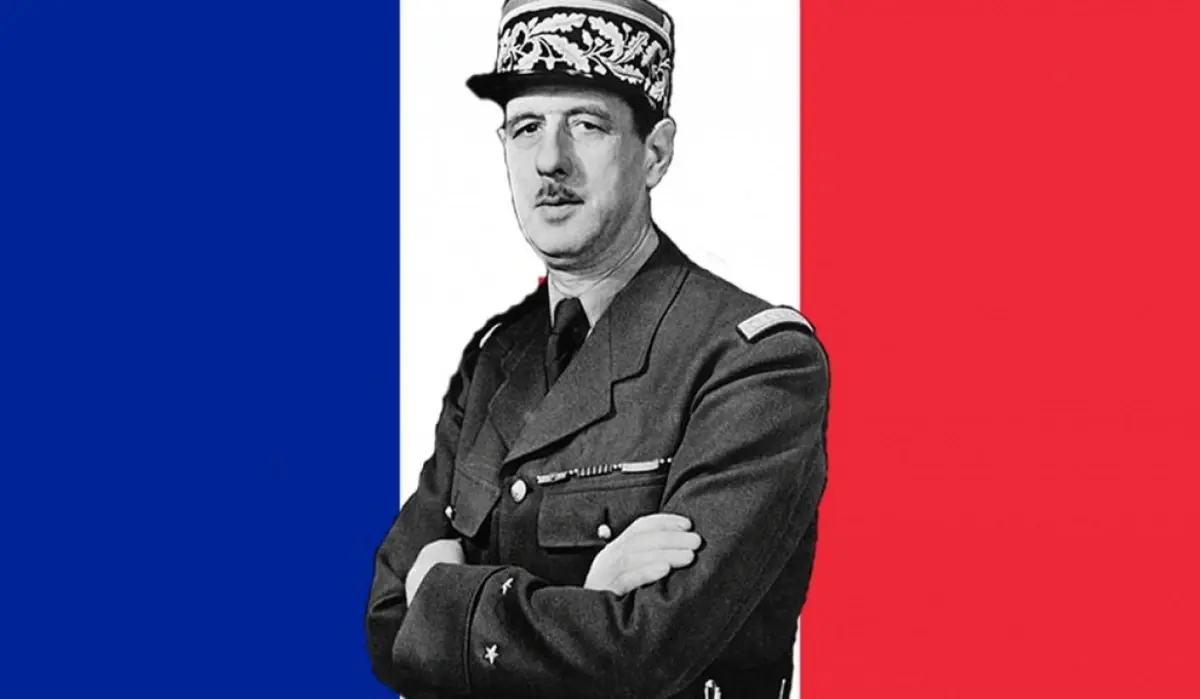 “I am a free Frenchman, I belong to no one, and I have a single mission – to fight for the liberation of my homeland,” was the civic stance of the statesman who championed the restoration of France’s greatness even during its occupation and his own exile. The founder and first president of the modern French Republic exemplified the decisive role of an individual in history.
“I am a free Frenchman, I belong to no one, and I have a single mission – to fight for the liberation of my homeland,” was the civic stance of the statesman who championed the restoration of France’s greatness even during its occupation and his own exile. The founder and first president of the modern French Republic exemplified the decisive role of an individual in history.
Patriotic Upbringing
Charles de Gaulle was born on November 22, 1890, in Lille. His mother came from a family of wealthy local entrepreneurs and had French, Irish, Scottish, and German roots, while his paternal ancestors represented the old landowning aristocracy of Normandy and Burgundy (his father taught philosophy and literature at a Jesuit college). The family raised their five children in the spirit of Catholicism and patriotism. As soon as he learned to read, young Charles wanted to write books himself, developed an interest in history, and became fascinated with military affairs. In the future, he would professionally realize all his childhood passions.
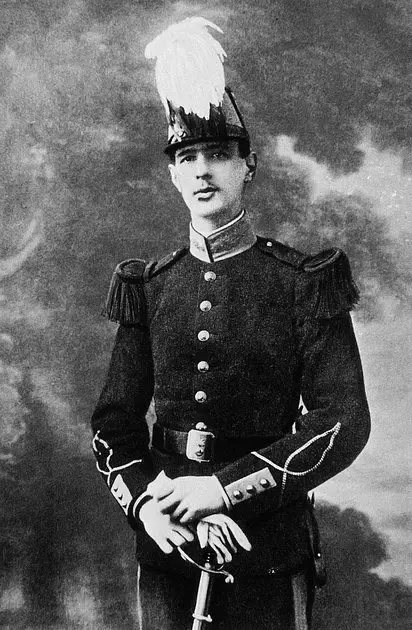
De Gaulle graduated from a military academy in 1912 with excellent marks and continued his education at the Higher Military School in Paris after being commissioned as a second lieutenant. He participated in World War I from the very beginning: on August 12, 1914, he arrived at the front with the 5th Army in the northeast and was wounded just three days later. In the spring of the following year, the young infantryman was wounded for the second time, and in 1916, for the third time. Before the Battle of Verdun, the young captain was promoted to company commander and was posthumously honored by the army after the battle near the village of Douaumont.
However, how Charles de Gaulle was killed remained a mystery, as he did not die; instead, he was captured by the Germans for 32 months: he was treated for his wounds in a hospital on the Main River and held in various fortresses, from which he unsuccessfully attempted to escape five or six times. During his captivity, the future general discussed military theory with another famous prisoner – the future Marshal of the Red Army, Mikhail Tukhachevsky, who was also studying Germany, which would benefit both in military command during the next war with the Germans. In the first part of his book “Call to Honor,” written while in captivity, de Gaulle expressed his views on the priority of politics over war.
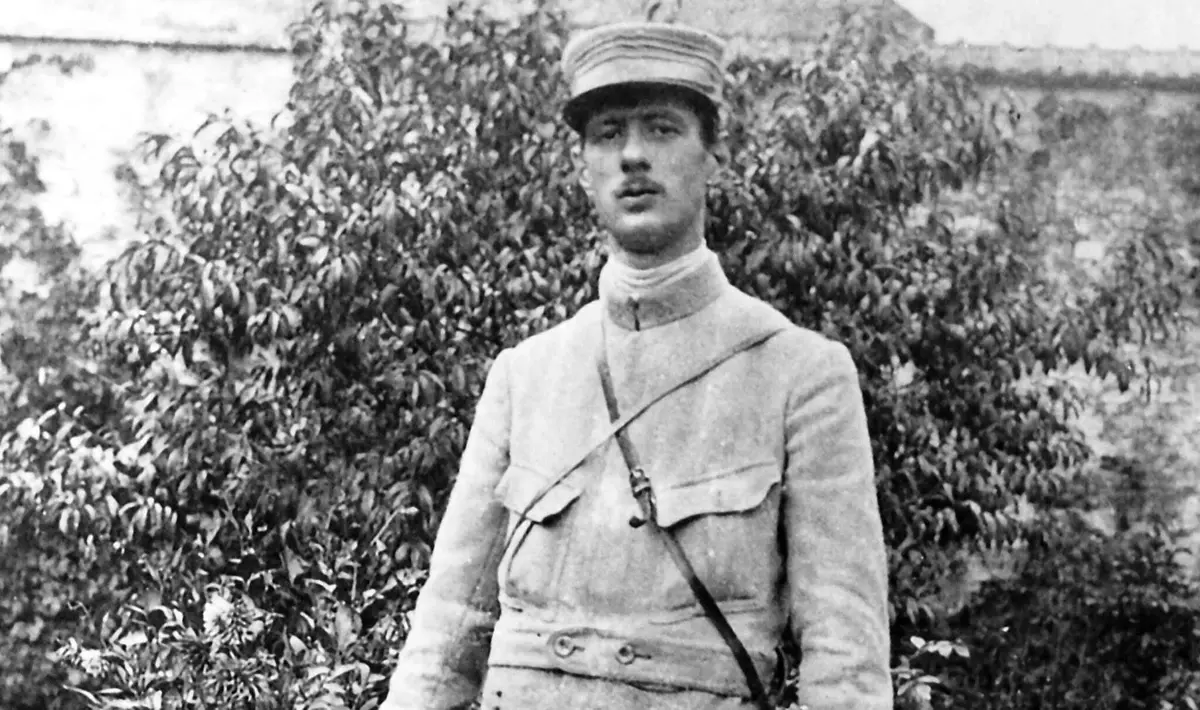
Career and Family
Ironically, life soon brought the former German prisoners together in a new military conflict. From 1919 to 1921, de Gaulle taught tactics at a military school near Warsaw, Poland, and briefly fought on the front lines of the Polish-Soviet War, where the forces of one side were commanded by Tukhachevsky in the rank of major. Subsequently, de Gaulle taught at military academies and the Higher Military School back home, having declined an offer for permanent service in the Polish Army. In April 1921, the military man married, as he told a friend, “to the cookie Vandra,” to which the bride’s father was connected through production.
In dedicating his memoirs to his wife, Yvonne Vandra, Charles de Gaulle wrote: “To the woman without whom I could have done nothing.” In 1922, the couple welcomed a son named after a key participant in the Battle of Verdun, Philippe Pétain, followed by two daughters – Élisabeth and Anne. The youngest daughter suffered from Down syndrome and passed away at the age of 20. As a result, de Gaulle became a patron of the foundation established by his wife to help children with such conditions. It was Yvonne de Gaulle who was attributed with the phrase: “Presidency is temporary, but family is forever.” She urged Charles de Gaulle to ban , prostitution, pornography, and nudity on screen.
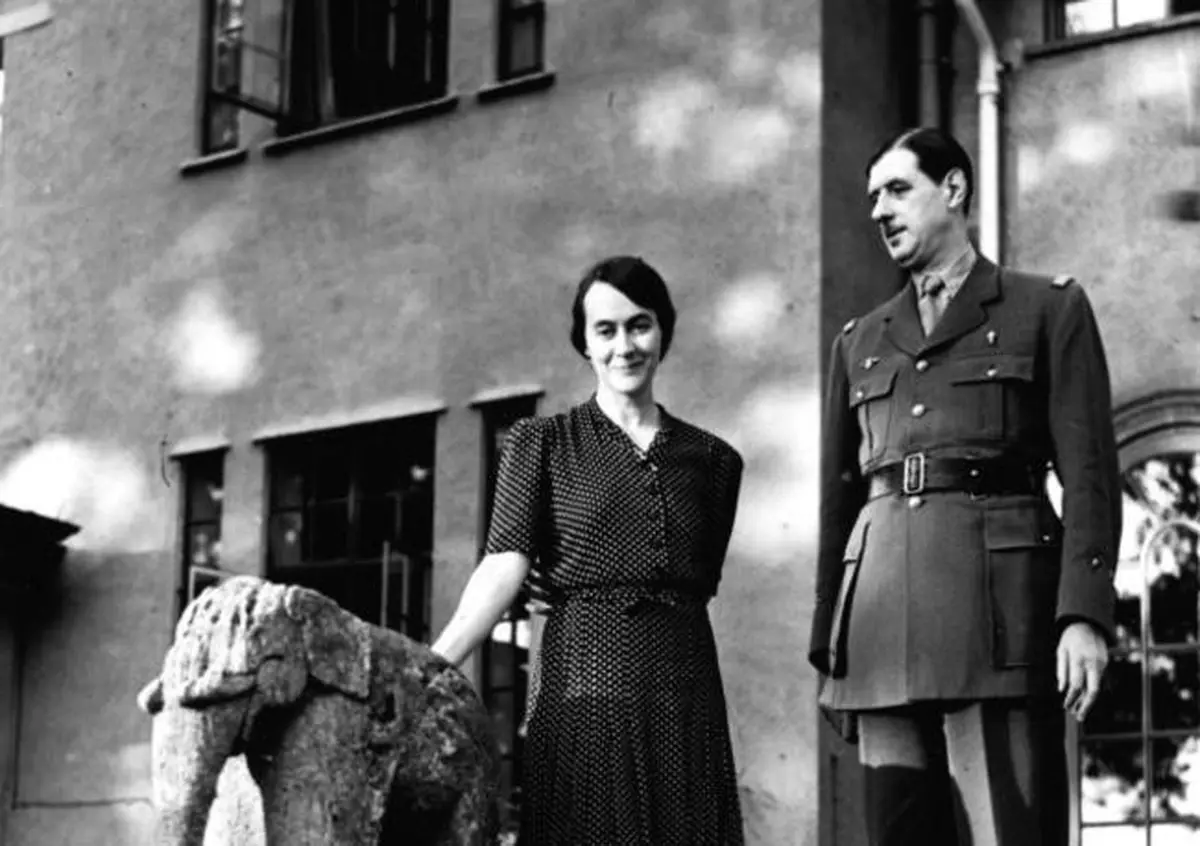
Charles de Gaulle with his wife
Meanwhile, year after year, the man gained recognition as a military theorist. By the onset of World War II, the architect of the professional army had already attained the rank of colonel. In May 1940, he was tasked with commanding the 4th Armored Division, consisting of 85 tanks and 5,000 soldiers, and from June 1, de Gaulle served as a brigadier general. At that stage of his military career, he was appointed Deputy Minister of Defense during the war in the cabinet of Prime Minister Paul Reynaud. Refusing to accept the terms of an armistice with the Germans, de Gaulle found himself under threat of arrest after the resignation of the government leader and the transfer of power to collaborator Henri Philippe Pétain.
Rescue of Soul and Honor
Indeed, Charles de Gaulle’s political opponent became the 84-year-old marshal with a past as a national hero of World War I. In 1918, the commander of the defense of Verdun, who played a crucial role in preserving the French army and bolstering its spirit, was awarded the highest military rank and gained immense popularity. However, in 1940, after France’s defeat in World War II, he led the collaborationist Vichy regime and cooperated with Nazi Germany. After the war, the traitor was sentenced to death, which was commuted to life imprisonment due to his advanced age, while at that time, the infamous figure faced off against Charles de Gaulle.
To be able to fight, the brigadier general was forced to seek refuge in Britain. This was a turning point in the biography of Charles de Gaulle and the fate of his country. Crossing the English Channel on June 17 in a biplane with Winston Churchill’s representative, General Edward Spears, he realized that upon his arrival in London, he was “nobody” – a deserter, an illegal, and a rebel. In his “Memoirs of Hope,” de Gaulle wrote that “on June 18, 1940, responding to the call of the homeland, deprived of any chance to save my soul and honor, alone, unknown to anyone, I had to take responsibility for France.”
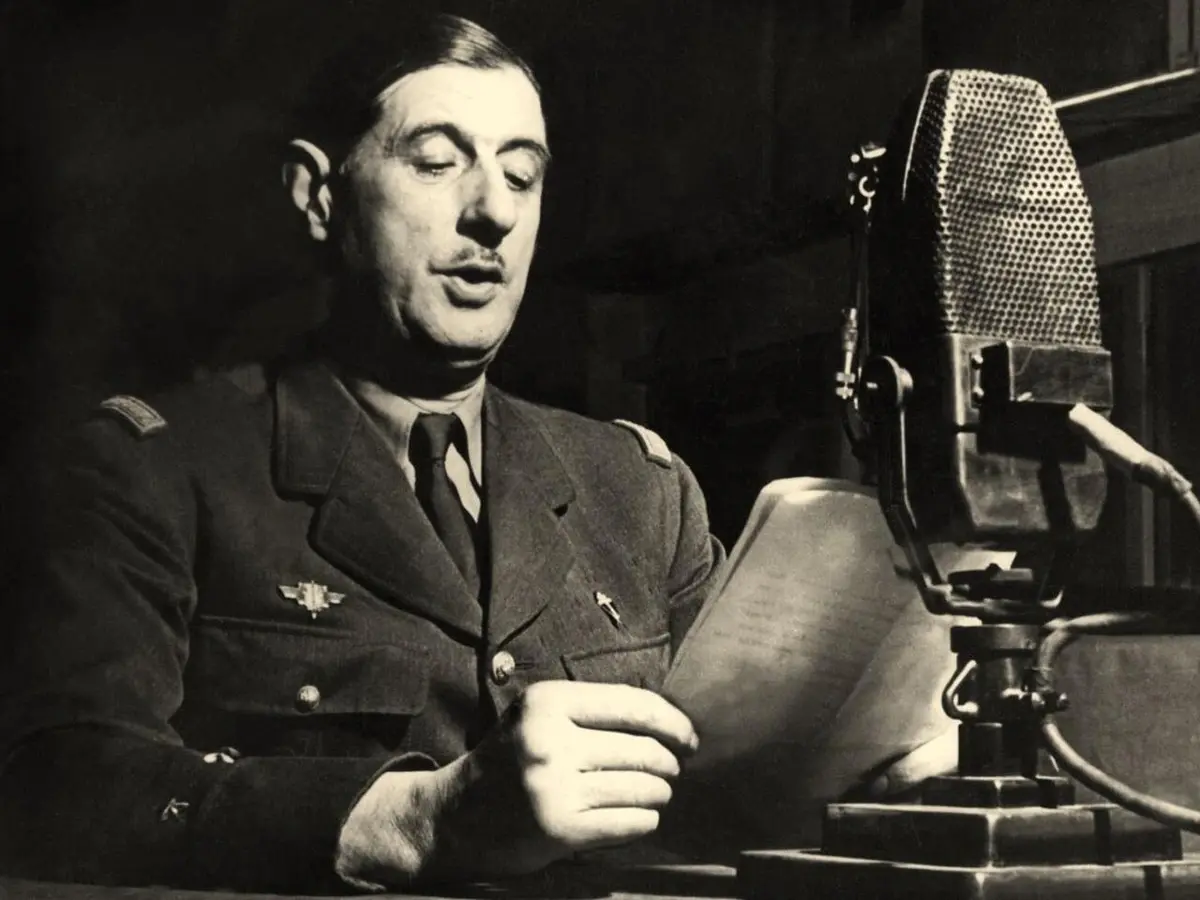
Charles de Gaulle addresses the French via BBC radio
On that historic day, de Gaulle spoke “with full awareness of duty, on behalf of France” over BBC radio in an address “To All Frenchmen,” where he accused the new government of treason and called on the people to unite around him in resistance. His subsequent speeches included themes such as: “Reconciliation will lead France to slavery,” “France lost the battle, but did not lose the war.” In Britain, Charles de Gaulle led “Free France” – an organization aimed at resisting the collaborationist Vichy regime and the occupiers, recognized by the allies of the anti-Hitler coalition. From that moment on, he became a true political leader of France, its epic hero, and savior.
Romantic Pragmatist
Churchill admired de Gaulle’s fighting spirit and his belief in his country’s unique path, yet at the same time, the independent, arrogant, proud, stubborn, and ungrateful “romantic pragmatist” earned a reputation as a difficult ally who had no intention of becoming anyone’s puppet. De Gaulle stated: “Allies are foreigners who may become enemies tomorrow.” When American troops landed in the French colonies of Algeria and Morocco in November 1942 and contacted French military leaders who supported the Vichy government, de Gaulle remarked: “The U.S. brings spontaneous feelings and complex politics into great affairs.”
The contradictions between de Gaulle’s patriotic ideals and the American choice of allies hindered coordinated policy in North Africa. In 1943, the general moved to the French colony of Algeria, where he, along with Marshal Giraud, established the government of France in exile. From then on, the leadership of the French Resistance movement was conducted from the African continent. The general did everything possible to preserve the national dignity of the French and not surrender the homeland to the protection of other states. Specifically, France owes to de Gaulle that immediately after the war, the country did not become a political appendage of the United States.
On June 6, 1944, on the Normandy coast, de Gaulle pressed Allied Commander Dwight Eisenhower to expedite the liberation of the French capital. De Gaulle appeared in Paris the day after its liberation and immediately took over the Ministry of Defense. In his historic speech at City Hall, the general emphasized not the decisive assistance of the allies but the crucial role of the French themselves in liberating the country. Thus, de Gaulle demonstrated that he would not allow foreigners to dominate France. The speed with which he established national authority prevented the implementation of the Allied military government in the occupied territories.
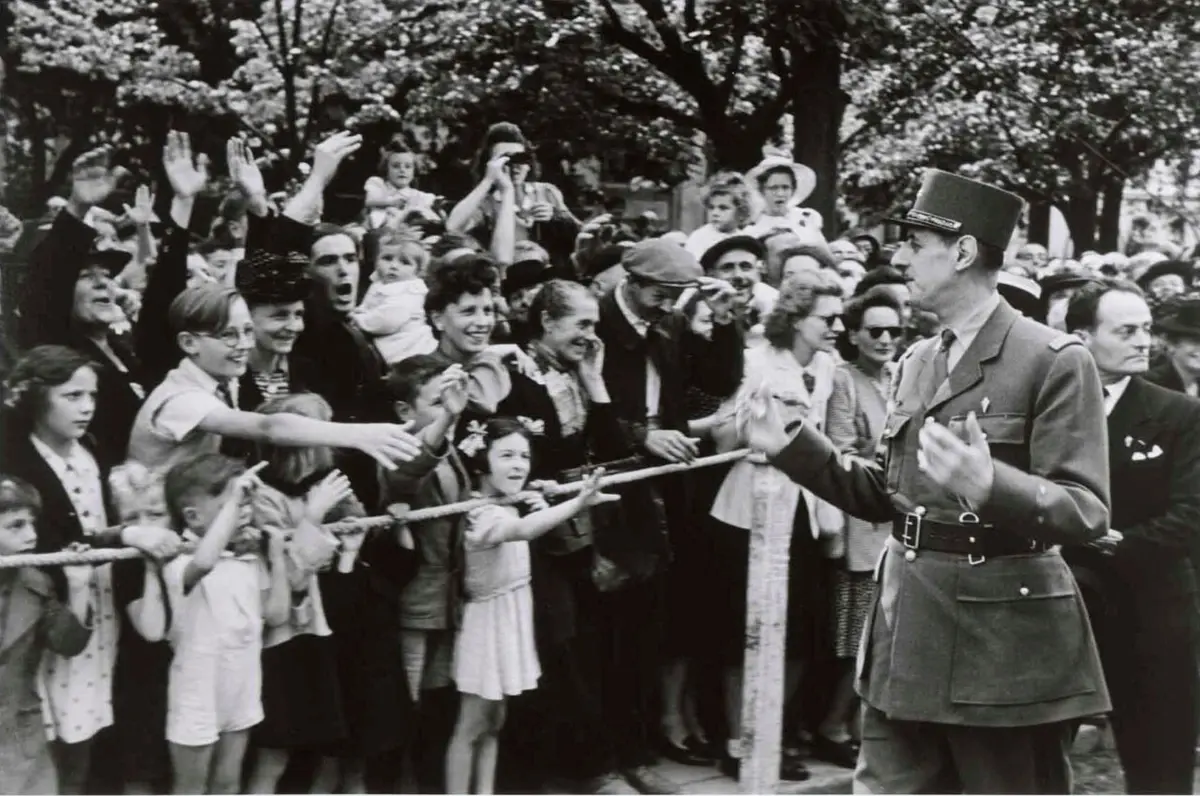
Charles de Gaulle at the parade honoring the liberation of Paris
Personal Power Regime
De Gaulle called himself a “free Frenchman” who “belongs to no one”: “I do not support any politician – centrist, conservative, or leftist.” The provisional government formed by the general in September 1944 included participants from the Resistance movement. From then on, the head of the Provisional Government effectively became the head of state – power was concentrated in the hands of Charles de Gaulle until 1946, and from 1947 he led the political party “Rally of the French People,” which he established for himself. In an effort to improve the country’s economic situation, de Gaulle’s government nationalized the largest financial institutions and significant enterprises in its first year.
By taking banks, coal mines, maritime transport, energy companies, and several major firms, as well as the Renault automotive company, the government was able to increase wages and eliminate taxes for low-income groups. The statesman, who distinguished himself with brilliant democratic reforms in the country after the war, which he wanted to see free, expelled collaborators who had cooperated with the Nazis from the government apparatus, amended the constitution to strengthen presidential power, allowed the indigenous population of the colonies to enter the French parliament and administrative positions, and ultimately granted freedom to the colonies.
On December 21, 1958, “the most distinguished of the French” (as Charles de Gaulle was called by his successor to the highest state office) was elected president of the French Republic for a second time. Although the hallmark of the Fifth Republic was the “personal power regime,” the result of “Gaullism” as a policy was rapid economic growth and scientific and technological progress. This period is associated with the development of high-tech industries (nuclear and missile), modernization of industry, increased production of consumer goods, and the disappearance of the foreign trade deficit.
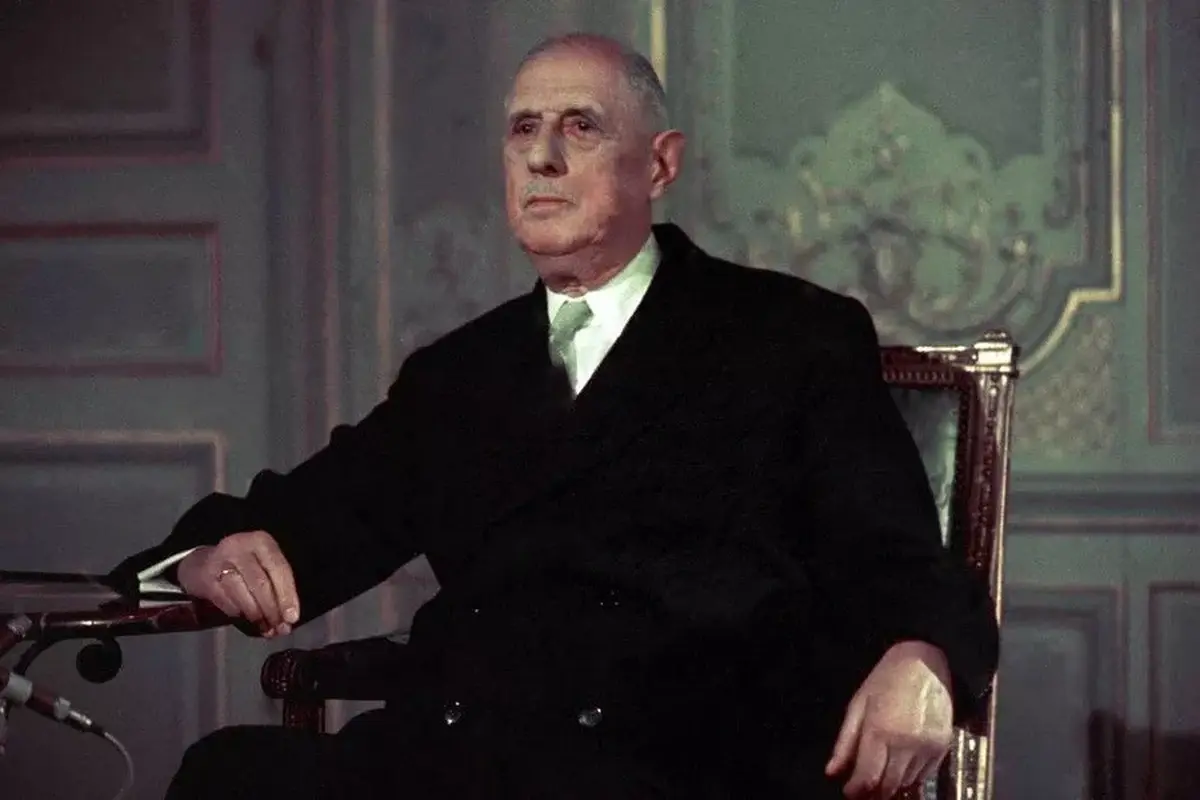
“The Last Great Frenchman”
During de Gaulle’s seven years as president, France’s gold reserves grew from zero in 1958 to $4.5 billion in 1965. The standard of living for the French improved so much that household savings became the main source of domestic investment. The country not only fully paid off its external debts but also became a creditor itself, ranking third in the world for capital exports at that time. Financial stabilization made the franc a strong currency, freely convertible worldwide. The unemployment rate in the country dropped to a minimum, and the number of scientists and cultural representatives doubled. France developed ballistic missiles, nuclear submarines, and the atomic bomb.
Focusing on modernizing the armed forces and equipping them with modern weapons, de Gaulle pursued his foreign policy objectives: to weaken American influence in Europe, restore France’s greatness, and strengthen its independence. In particular, in an effort to demonstrate an independent foreign policy and restore his country’s role as an autonomous player in military matters, in 1966, President de Gaulle announced France’s withdrawal from NATO’s military command, which was dominated by the U.S., while maintaining participation in the alliance’s political structures (de Gaulle advocated for pan-European armed forces).
“The last great Frenchman” opposed the admission of Great Britain to the European Economic Community, considering it a conduit for U.S. influence in Europe. Warning the Old World against becoming satellites of great powers, the President of France advocated for an “independent European Europe” of nationally sovereign countries. Even with a negative attitude toward communists, to counterbalance the U.S., Charles de Gaulle dared to bring France closer to the Soviet Union, and while bringing the French closer to the Federal Republic of Germany, the principled anti-fascist remained a consistent opponent of revanchist ideas.

Charles de Gaulle in Kyiv
How Charles de Gaulle Died
Of course, the independent politician had enemies – both in his country and abroad. There were 23 assassination attempts on Charles de Gaulle. The most famous attempt on his life was an incident orchestrated by the OAS (a clandestine nationalist terrorist organization, Organisation de l’armée secrète, which opposed granting independence to Algeria under the slogan “Algeria is French and will remain so”). On August 22, 1962, terrorists opened fire on Charles de Gaulle’s car in Paris, specifically in the suburban area of Petit-Clamart. By a stroke of luck and the skill of the driver, no one was harmed in the bullet-riddled vehicle (including the de Gaulle couple).
“I feel fine, but I promise to die someday,” Charles de Gaulle joked about his condition at a press conference in 1965. The tall Frenchman, who had a knack for humor, was referred to by journalists as “Colonel Motor,” “The Great Asparagus,” or “Big Charles” (the reason being his nearly two-meter height – 1.96 m). Interesting facts about Charles de Gaulle include his visit to Kyiv on June 27, 1967, and his appearances at two capital graves – Askold’s and the Unknown Soldier’s. Charles de Gaulle was not assassinated; he died at the age of 79 in his country estate from natural causes – a ruptured aorta.
After his death on November 9, 1970, the then-president of the state declared that “France had become a widow.” Charles de Gaulle’s widow, Yvonne (their marriage lasted half a century), passed away on November 8, 1979 – the day before the ninth anniversary of her husband’s death, at the same age he was. The aircraft carrier “Charles de Gaulle,” the international airport in Paris “Charles de Gaulle,” and the lilac rose variety “Charles de Gaulle” are named after her beloved general. Even 55 years after bidding farewell to the prominent political figure, his memory lives on in the hearts of the French, who recognize in their national leader a significant historical figure, equal to Napoleon I.
Photo from open sources
